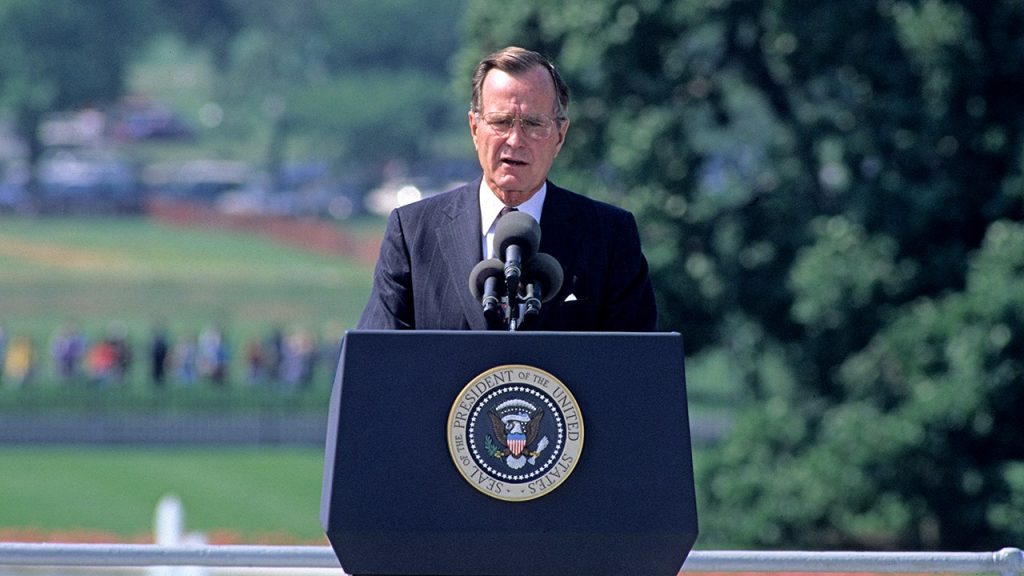On September 2, 1944, future President George H.W. Bush was the sole survivor after his aircraft was shot down by enemy fire off the Japanese island of Chichijima. Bush, then a pilot with Torpedo Squadron Fifty-One aboard the USS San Jacinto, managed to release his bombs and bail out over the water before parachuting safely into the ocean. Two crew members perished in the attack, but Bush survived for hours until he was rescued by an American submarine, the USS Finback. The dramatic event left a lasting impact on Bush, who later described it as giving him a sobering understanding of war and peace.
Rescued by the submarine, Bush spent a month on board, often standing the midnight-to-4 a.m. watch. He was awarded the Distinguished Flying Cross for bravery in action. Born in Milton, Massachusetts, in 1924, Bush enlisted in the U.S. Armed Forces on his 18th birthday and flew 58 combat missions during World War II. He became the youngest pilot in the Navy when he received his wings and eventually served as the 41st president of the United States from 1989-1993.
Before his presidency, Bush held various senior-level positions, including Vice President under Ronald Reagan from 1981-1989. He focused on completing his education and raising a family, marrying Barbara Pierce in January 1945 and having six children. His son, George W. Bush, later served as America’s 43rd president from 2001-2009. President Bush was the first sitting vice president to ascend to the presidency since 1837, and the second American president to serve a full term without party control in either chamber of Congress.
Coming from a family steeped in public service, George H.W. Bush’s experience of being shot down during World War II broadened his horizons and left a lasting impact on his understanding of war and peace. Bush passed away on November 30, 2018, at the age of 94. His legacy continues through his family and his contributions to public service, including his service as a naval aviator during World War II and his tenure as the 41st President of the United States.
President Bush’s survival after being shot down by enemy fire in 1944 off the Japanese island of Chichijima was a significant moment in his life and career. Despite the loss of two crew members in the attack, Bush managed to release his bombs and parachute safely into the ocean before being rescued by an American submarine. The experience gave him a deeper understanding of the realities of war and peace, shaping his future approach to leadership and public service.
From his early military service as a naval aviator to his presidency from 1989-1993, George H.W. Bush’s career in public service was marked by dedication, integrity, and a commitment to his country. His tenure as the 41st President of the United States saw him navigate complex challenges both domestically and globally, demonstrating his leadership skills and ability to unite people across political divides. Bush’s legacy continues to be celebrated for his contributions to public service and his commitment to serving his country with honor and distinction.


